Israel was not the first one to recognize the extraordinary talent of Artem Dolgopyat, the new Olympic artistic gymnastics gold medalist.
At just 12 years of age, Ukraine has already put its sights on the future Olympian. By that time, he was already twice national champion in his age group and was slated to move from his birthplace of Dnipropetrovsk to the capital, Kyiv, where he would live in boarding school conditions and train to become a leading gymnast for the country that has grown so many Olympic champions in the prestigious sport.
5 View gallery
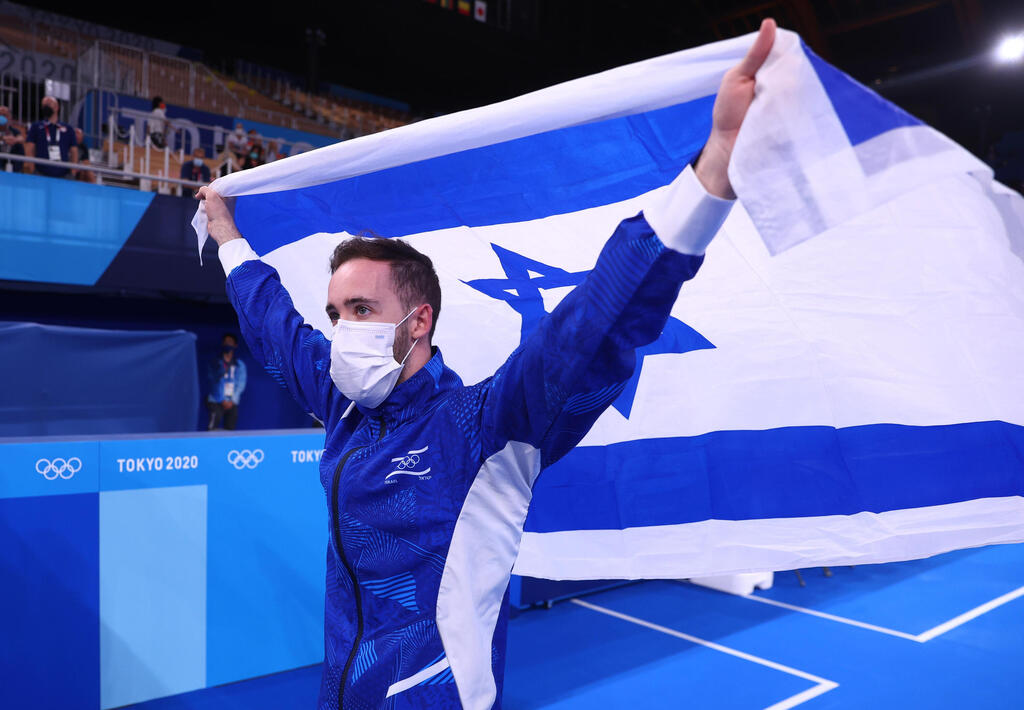

Israeli gymnast Artem Dolgopyat lifts up the Israeli national flag as he bags the gold medal after winning the floor exercise at Tokyo Olympics 2020, August 1, 2021
(Photo: Reuters)
Fortunately for the Jewish state, his parents had other plans in mind. Desperate from the harsh economic situation in the eastern European country, they told little Artem about their intention to migrate to Israel in 2009.
This decision has proven to be worth gold as the 24-year-old chalked up the top prize for the second time in the country's Olympic history and for the first time in gymnastics.
The smallest kid in class
Artem's father Oleg — an electrical technician and himself a former gymnast — wanted his son to get a taste of the sport as well.
At the tender age of six, Dolgopyat's father signed him for gymnastics classes for the first time.
In an interview with Israeli Russian-language newspaper Vesti, Dolgopyat told about his early days in the field.
"I remember entering the gym and seeing lots of kids jumping on trampolines and doing somersaults. They were a few years older than me, I was the youngest kid in the group. I started training once a week, then twice and later went up to three," he said.
Another thing Dolgopyat remembers from those days is the coach's methods of instilling motivation in him.
5 View gallery
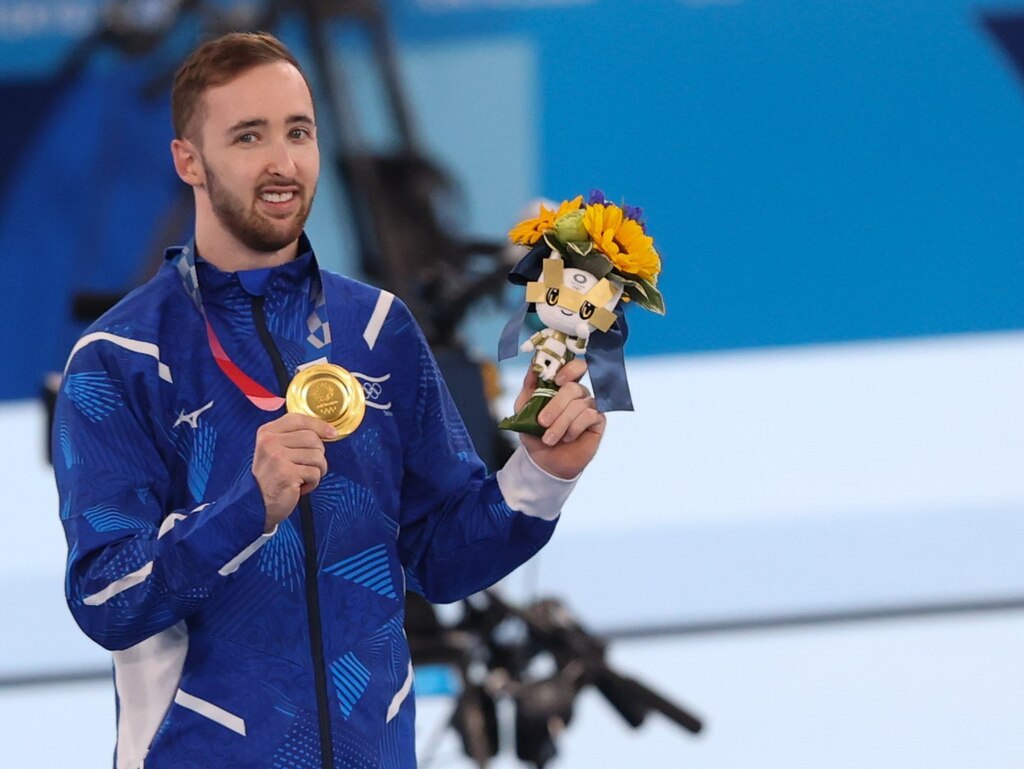

Dolgopyat showcases his gold medal after winning the floor exercise at Tokyo Olympics 2020, August 1, 2021
(Photo: Oren Aharoni)
"The coach promised me a piece of candy for each exercise. He later replaced the candy with juice. Already at that time, my dad started planning specific goals for me and by the age of 11, I was already training 4–5 hours every day."
In a later interview with the national Olympic committee, he also told about the tough side of his coaches in Ukraine and how he finished many training sessions in tears.
"In Ukraine, we don't call the coach by name, but by his name and his father's name as a sign of respect. The coach would set goals for me, if I failed to accomplish them within an hour and a half, he would send me for a fitness workout, which he knew I disliked. If I had not done what was required of me on the best side, he would not let me go home."
Welcome to Israel
Rough and rugged from the domineering treatment he's received in Ukraine, he arrived in Israel. His family settled in the city of Lod in the country's center and his parents were quick to find a job to pay for their talented son's training.
Dolgopyat told Vesti that when he first arrived in Israel, he did not know much about Judaism besides the fact his grandmother was Jewish.
In general, the idea of moving to a foreign country at such a critical point in his development as an athlete seemed strange to him then. He arrived in Israel right for the hot summer months and told in the past about how he struggled to breathe due to the heavy heat to which he was not accustomed.
Dolgopyat soon joined Maccabi Tel Aviv's gymnastics team, where he began training under senior gymnastics coach Sergei Weisburg who still guides him to this day.
5 View gallery
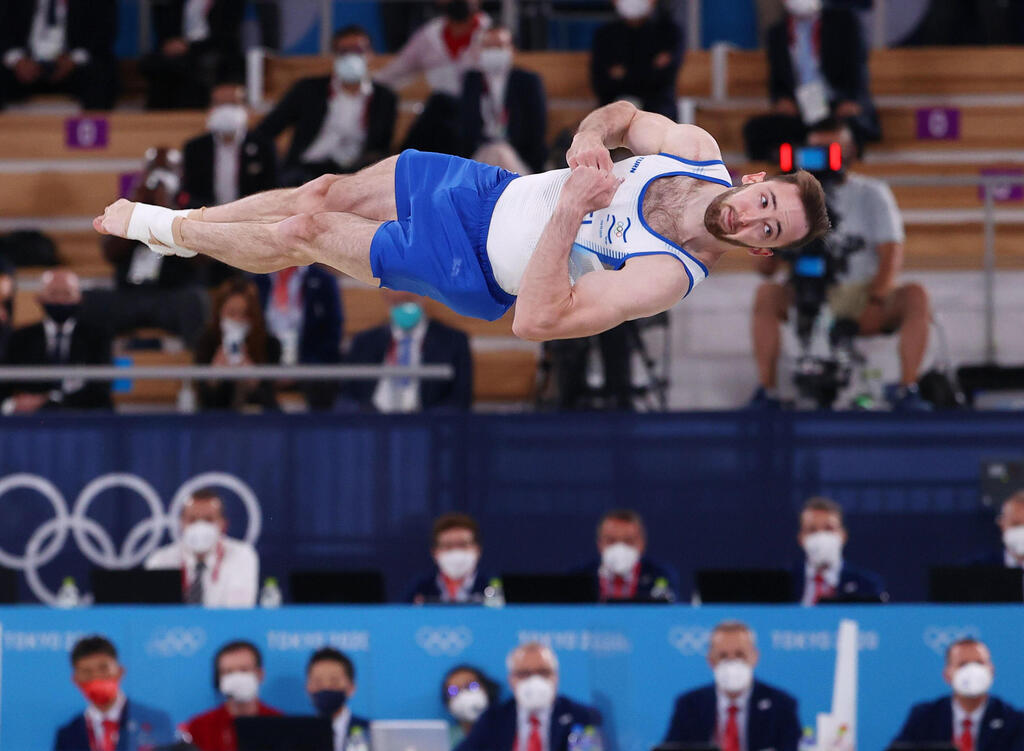

Dolgopyat mid-air during his gold-medal performance in the floor exercise at Tokyo Olympics 2020, August 1, 2021
(Photo: Reuters)
Dologpyat said that despite the new environment and people, the transition was smooth on the mat. He was fluent in the language of gymnastics but did not possess the same command of the Hebrew language, which made it very difficult for him at school.
At some point, Dolgopyat's family learned about Shevah Mofet where many immigrants from the former Soviet Union study, and he transferred to the Tel Aviv school.
He had to give up his matriculation exams both because of his struggles with the language and because he had to devote as many hours as possible to his main interest: gymnastics.
At Maccabi Tel Aviv, Dolgopyat also met the groundbreaking gymnast and role-model-turned-close-friend, Alex Shatilov.
The young Dolgopyat, who was very skinny as a child, saw Shatilov take Israeli gymnastics to heights never seen before — reaching Olympic finals and gracing the podium in European and world championships.
"Shatilov was like a big brother to me who was always willing to help," he said in a past interview. "He's a big inspiration for me."
5 View gallery
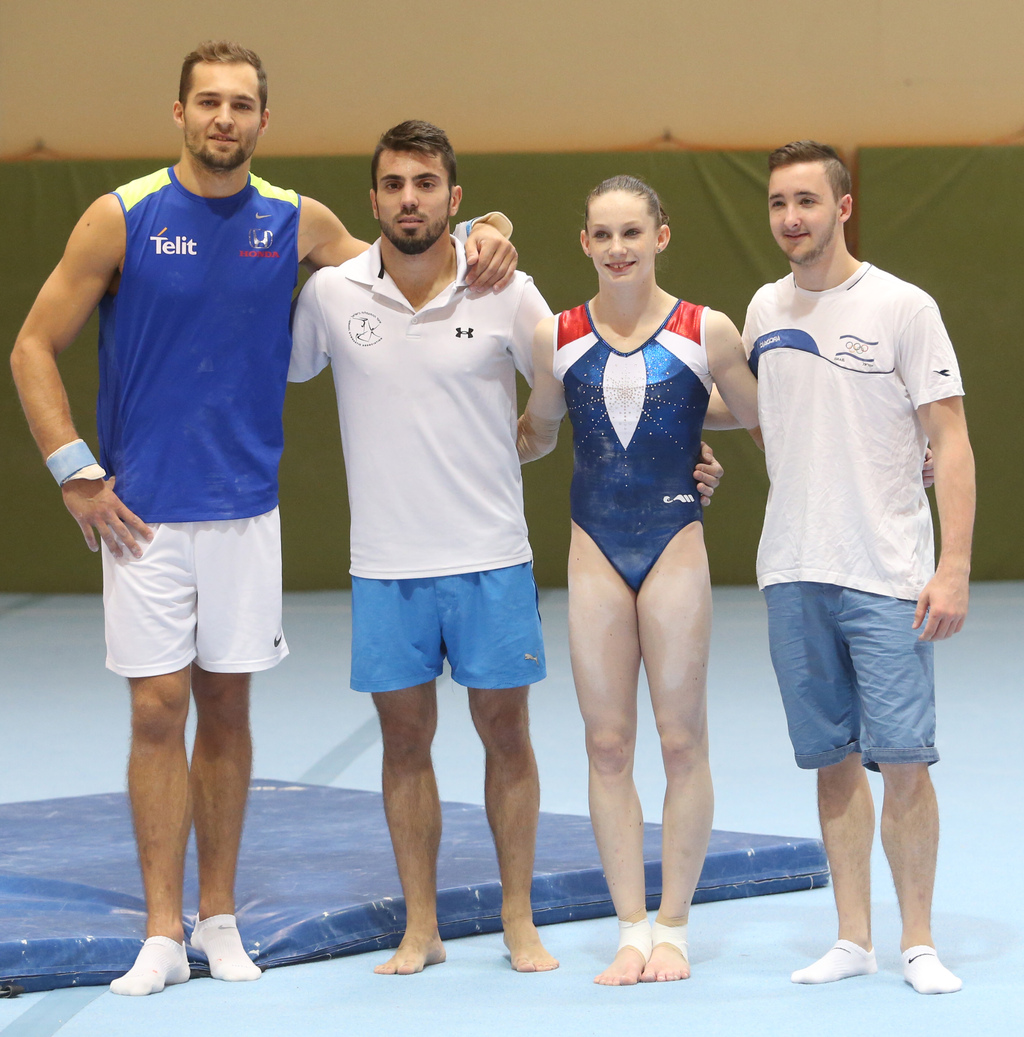

A young Dolgopyat (right) with Israeli Olympic gymnast and close friend Alex Shatilov (left)
(Photo: Oren Aharoni)
Much like his mentor, Dolgopyat was especially fond of the floor exercise and specialized in it.
He made his Olympic debut at the competition's youth edition in Nanjing, China in 2014 where he finished eighth in the floor exercise and tenth in the all-around competition. But Dolgopyat is the last one to fear a long and winding road.
The student surpasses the master
Artem first made headlines in 2015 when he was just 18, beating Shatilov at the national championship.
The shocked media did not focus on Dolgopyat's amazing feat but his mentor's unseating as the country's undisputed top gymnast. No one outside the field of gymnastics knew about the diamond in the rough that was taking shape right under everyone's noses.
His first major international achievement — and the one that officially crowned him as Shatilov's successor — came at the World Championships in Montreal four years ago. Dolgopyat bagged a silver medal, beaten only by Japanese phenomenon Kenzō Shirai.
He recreated his feat again two years later in Stuttgart on top of finishing on the podium at the European Championships four more times, including a gold medal last year despite COVID-19 lockdowns hurting his preparations.
Alongside achievements, Dolgopyat has also faced quite a few injuries during his career, including some that have put his sporting career in real jeopardy. The person who was always by his side is the national team's physiotherapist Adam Badir who celebrated together with the Olympian after his win, lifting up the Israeli national flag.
Risk-taking and composure pay off
Dolgopyat has become in recent years a leading candidate for Olympic glory.
5 View gallery
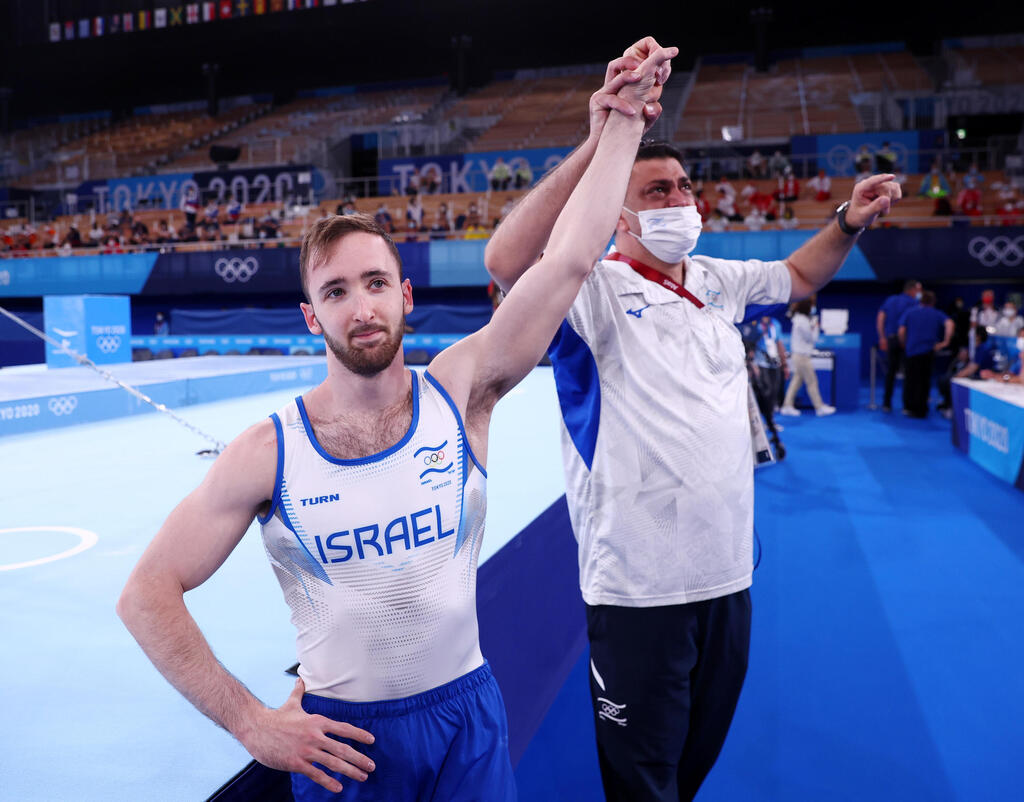

Dolgopyat celebrates his gold medal win in the floor exercise alongside Israeli national gymnastics team physiotherapist Adam Badir at Tokyo Olympics 2020, August 1, 2021
(Photo: Reuters)
Scoring in gymnastics consists of two elements: a routine's level of difficulty which is determined by acrobatic elements and the quality of the performance.
Dolgopyat is known for his extremely intricate routines which entail a great risk but can also pay off immensely. This has helped him to score high enough to win the coveted gold medal despite small inaccuracies.
One of the things that stand out about Dolgpyat is the stone-cold composure that radiates off him as he prepares to perform his highly complex routines on the mat.
"I detach myself from everything that has nothing to do with my craft," he told the Olympic Committee in the past. "The night before a competition, I perform a simulation of the routine. At the competition itself, I do not look around and do not listen to anyone. I take a corner, concentrating on myself and what I have to do."
And now, Dolgopyat's concentration and inner peace have paid off and given Israel the greatest sporting achievement in its Olympic history.

